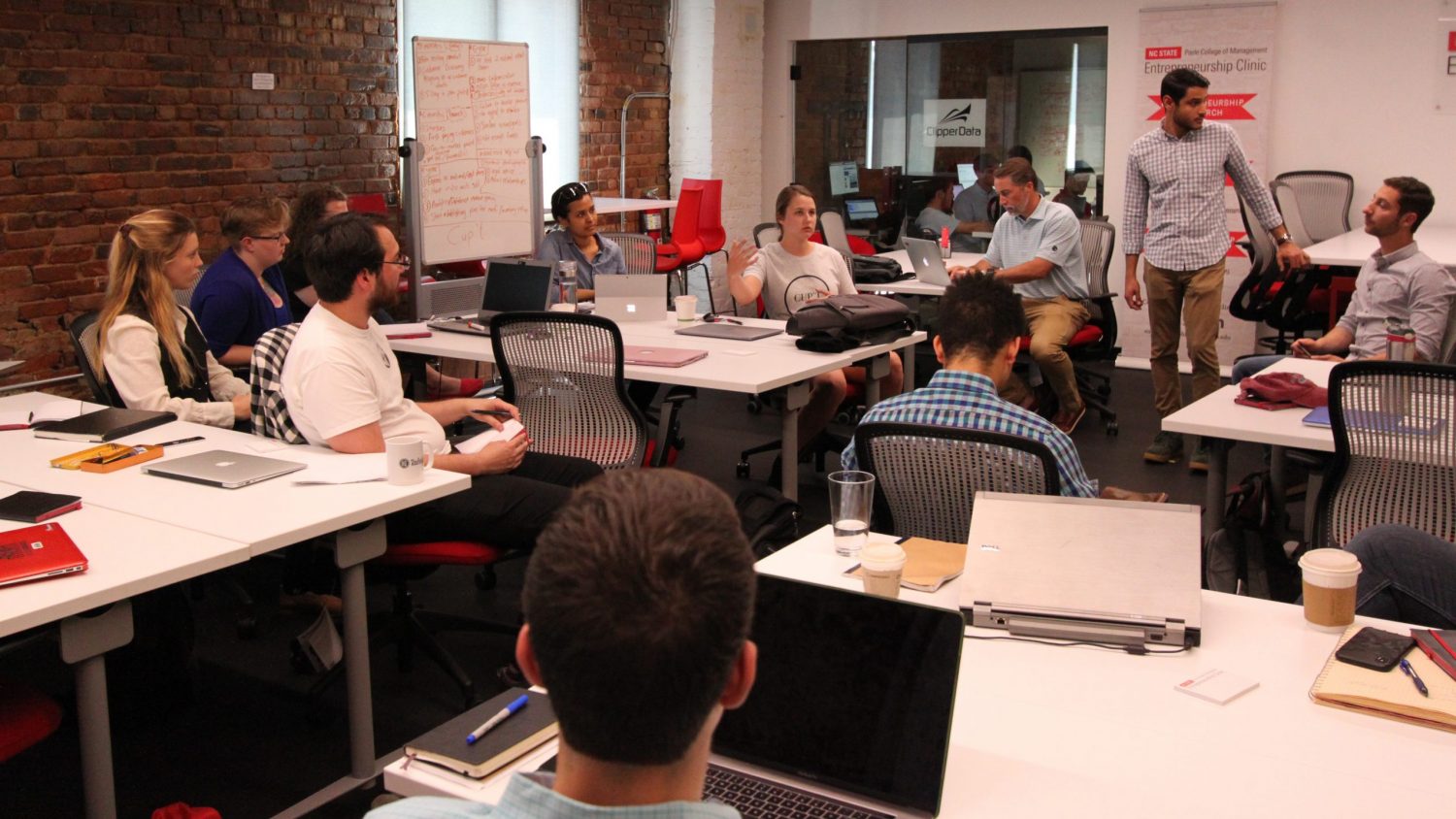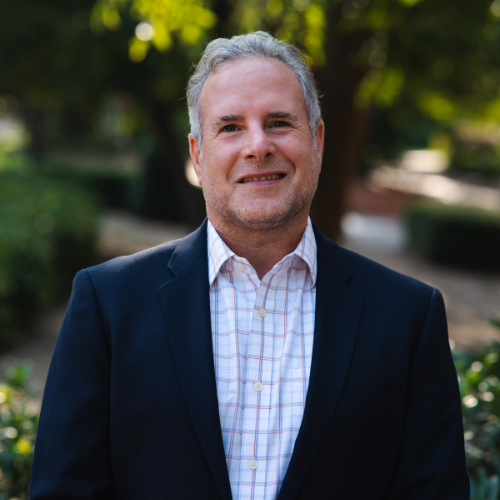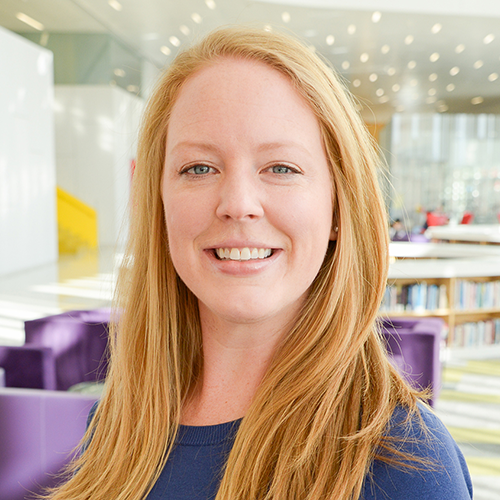Entrepreneurs Do Better By Talking Less and Listening More
New Poole College research shows how a commitment to listening can help ventures grow and thrive.

For many people, even those who haven’t heard much about startup accelerators, the first thing that comes to mind when they think about ventures is the business pitch. And that’s for good reason. From the television show “Shark Tank” to Y Combinator to NC State’s own Andrews Launch Accelerator, the most visible part of the startup accelerator process is the business pitch on demo day.
But any founder who has participated in a startup accelerator will tell you the most meaningful part of the process was what they learned and heard before their pitch, not what they said during it. And new Poole College research supports the idea that entrepreneurs should talk less and listen more.
“It is what happens before the pitch, and to some degree after the pitch, that matters most,” said Jeff Pollack, Lynn T. Clark II Distinguished Professor of Entrepreneurship. “There is such a focus on being prepared to give a passionate pitch…this is taught in classrooms, portrayed in the media and in mentoring that we sometimes lose focus on what is really important. And that’s listening, and not talking all the time.”
Entrepreneurs who develop a listening capability for themselves and across their ventures are more likely to be able to grow their business, survive and succeed, according to a forthcoming paper from Pollack and his co-author, Dean Shepherd, Ray and Milann Siegfried Professor of Entrepreneurship at the University of Notre Dame’s Mendoza College of Business.

That venture-wide capability is key, Pollack and Shepherd argue, because a single entrepreneur or founder alone can only take in and act on a limited amount of feedback from stakeholders, customers and others. Developing other venture members’ listening ability can “inform and/or change additional capabilities critical for venture growth,” they write in “A Listening Model Of Venture Growth: Entrepreneurs’ Listening Abilities And Ventures’ Listening Capabilities,” which is in-press with the Journal of Business Venturing. .
Scaling Listening Skills
Within typical startup accelerator programming, lots of time—deliberately—is spent on listening to customers, mentors and potential investors. Josh Guter—program manager of the NC State Entrepreneurship Clinic (E-Clinic), and point person for the Andrews Launch Accelerator—shares that a large component of a cohort member’s time is spent on activities that require them to listen.
But putting what they learn from all that listening into practice, Guter said, can be a challenge for entrepreneurs. They have to balance executing on the business with collecting information. Founders typically can’t do both at the same time easily since they are usually individuals or two-person teams with limited time.
There are many different paths founders can try, but they have limited information about how any will actually work out.

The Andrews Launch Accelerator aims to help founders by giving them applicable information about scaling their own startup, so they don’t make the same mistakes others have. That intelligence, Guter said, covers everything from customer discovery to fundraising, and it comes in many forms: talks from established speakers, insightful shared content or advice from mentors.
This approach, Pollack and Guter argue, is far different from what people may assume happens in accelerators. The accelerator process is about developing the pitch, not necessarily giving it. The journey, as they say, is the actual destination. The pitch is simply a reflection of what the entrepreneur learned throughout the process. And the pitch represents an ongoing conversation—one that begins far before demo day and continues long after. The pitch should engage stakeholders (e.g., mentors, investors, etc.), priming them to offer information and perhaps financial support. People who only focus on the pitch miss this key part of the process, Pollack and Guter said.
Put simply, the entrepreneurs who develop their listening abilities—and who foster a listening capability within their ventures— have a greater chance for success. That’s because they realize that entrepreneurship is a two-way conversation.
“The top founders we get to work with are innately curious and excellent listeners,” said Haley Huie, director of the E-Clinic. “We see this every year in the entrepreneurs we support at the university and in the community. First, these innovators need to become experts in existing pain points and gaps. They can’t do this based on assumptions or personal experiences, and they must be open to practicing empathy with the target market, end users and other stakeholders.”
The E-Clinic works with organizations of all sizes, Huie said, and one common piece of advice for all of them is to listen to their customers. Even seasoned entrepreneurs who’ve taken companies public coach students on developing this essential skill. Scot Wingo, founder of the Tweener Fund and a former CEO with an IPO and multiple successful exits, said as much when talking recently to a group of aspiring entrepreneurs at NC State.

Listening relates to perceived coachability. And, this has strong implications for entrepreneurs doing fundraising. There’s a saying in the startup community, Huie said: “If you want advice, ask for money. If you want money, you should ask for advice.” The core lesson is that investors are more likely to work with coachable founders who are open and hungry for any insights they can gather.
And, Pollack and Shepherd note in their paper, “listening is a critical (and dynamic) capability for venture growth and a capability that entrepreneurs can build.”
- Categories:


